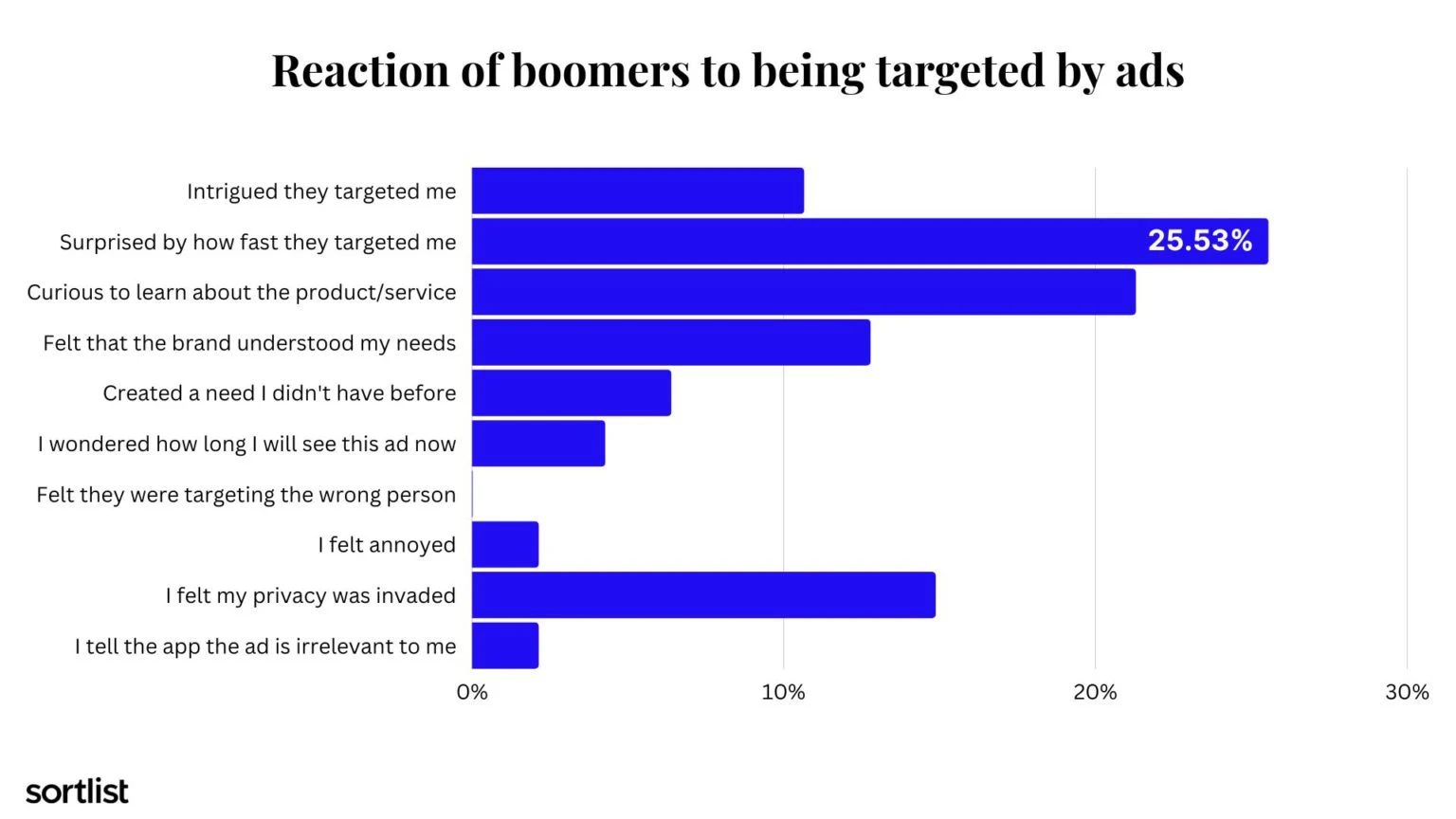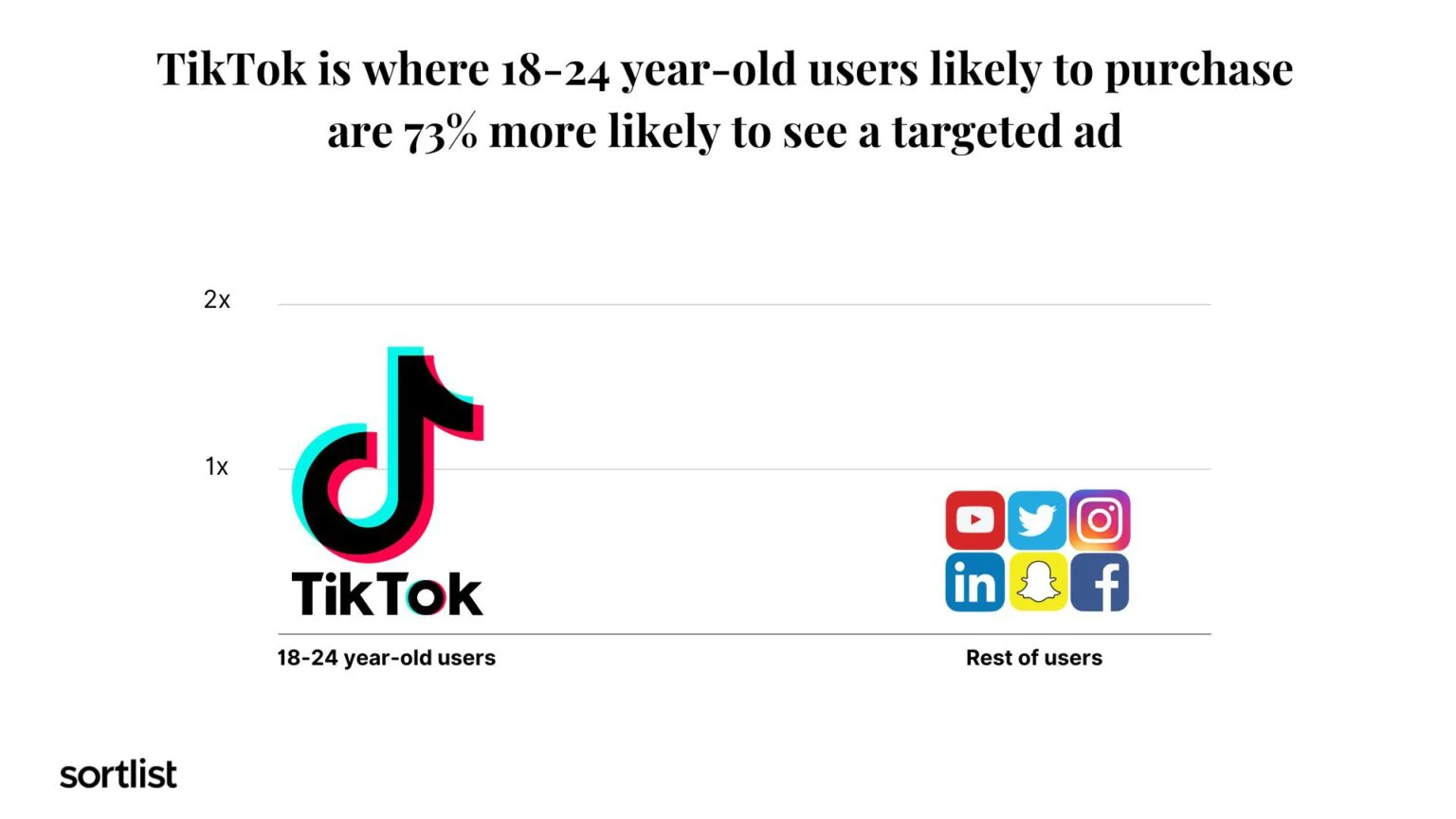We have all seen some targeted ads that seem suspiciously specific. A number of users might even get paranoid that these ads are only possible because their phones are listening in on their conversations and spying on them. It turns out that 66% of people have noticed that they received a targeted ad regarding something that they had a face to face conversation about according to a YouGov survey.
With all of that having been said and now out of the way, it is important to note that such ads might have a negative impact on consumer trust and brand perception. Around 37.4% of customers said that they disliked targeted ads because of the fact that this is the sort of thing that could potentially end up infringing on their right to privacy, as reported by Sortlist.
What's more is that 90% of people who are between the ages of 35 to 44 have said that they have never bought something after seeing it in a targeted ad. This makes these ads seem a lot less effective than might have been the case otherwise, and considering how much harm it can do to consumer trust, it may be better to avoid them.
If we were to zero in on the younger demographics, namely those between the ages of 18 to 24, they also don’t seem to look at targeted ads all that favorably with all things having been considered and taken into account. Seeing a targeted ad can make people in this demographic 28% more likely to start hating the brand, which might cause irreparable long term damage in most cases.
Interestingly, privacy violation was less of an issue for Gen Z. Only 13.7% of them felt that their privacy had been violated by targeted ads. In spite of the fact that this is the case, 39% of them said that they were surprised by how quickly the ad turned up. Considering how young this generation is, this surprise could turn into resentment pretty quickly once they start to get overwhelmed with targeted ads that they simply cannot find the root cause of.
One thing to note here is that all targeted ads are not created equal. In fact, targeted ads might be truly amazing for a brand’s sales if they were placed on TikTok. Ads that Gen Z consumers see on this platform can make them 73% more likely to buy the product that they see, which just goes to show that it’s all just a matter of targeting the right people in the right place at the right time.
Brands would do well to take heed of the statistics presented in these surveys. They seem to indicate that the younger crowd is more agreeable when it comes to targeted ads as long as they expect to see them. TikTok is a platform that is full of ads like this, so they are less likely to be taken aback if they see those ads.
Baby boomers are also quite similar to Gen Z in this respect. They seem to perceive targeted ads as being useful rather than invasive, which makes it seem like they should be another demographic that targeted ads should focus on in the near future.
Read next: Top Professional Development Trends and Most In-Demand Skills for the Contemporary Job Market, according to LinkedIn's 2023 Work-based Learning Survey
With all of that having been said and now out of the way, it is important to note that such ads might have a negative impact on consumer trust and brand perception. Around 37.4% of customers said that they disliked targeted ads because of the fact that this is the sort of thing that could potentially end up infringing on their right to privacy, as reported by Sortlist.
What's more is that 90% of people who are between the ages of 35 to 44 have said that they have never bought something after seeing it in a targeted ad. This makes these ads seem a lot less effective than might have been the case otherwise, and considering how much harm it can do to consumer trust, it may be better to avoid them.
If we were to zero in on the younger demographics, namely those between the ages of 18 to 24, they also don’t seem to look at targeted ads all that favorably with all things having been considered and taken into account. Seeing a targeted ad can make people in this demographic 28% more likely to start hating the brand, which might cause irreparable long term damage in most cases.
Interestingly, privacy violation was less of an issue for Gen Z. Only 13.7% of them felt that their privacy had been violated by targeted ads. In spite of the fact that this is the case, 39% of them said that they were surprised by how quickly the ad turned up. Considering how young this generation is, this surprise could turn into resentment pretty quickly once they start to get overwhelmed with targeted ads that they simply cannot find the root cause of.
One thing to note here is that all targeted ads are not created equal. In fact, targeted ads might be truly amazing for a brand’s sales if they were placed on TikTok. Ads that Gen Z consumers see on this platform can make them 73% more likely to buy the product that they see, which just goes to show that it’s all just a matter of targeting the right people in the right place at the right time.
Brands would do well to take heed of the statistics presented in these surveys. They seem to indicate that the younger crowd is more agreeable when it comes to targeted ads as long as they expect to see them. TikTok is a platform that is full of ads like this, so they are less likely to be taken aback if they see those ads.
Baby boomers are also quite similar to Gen Z in this respect. They seem to perceive targeted ads as being useful rather than invasive, which makes it seem like they should be another demographic that targeted ads should focus on in the near future.
Read next: Top Professional Development Trends and Most In-Demand Skills for the Contemporary Job Market, according to LinkedIn's 2023 Work-based Learning Survey


















